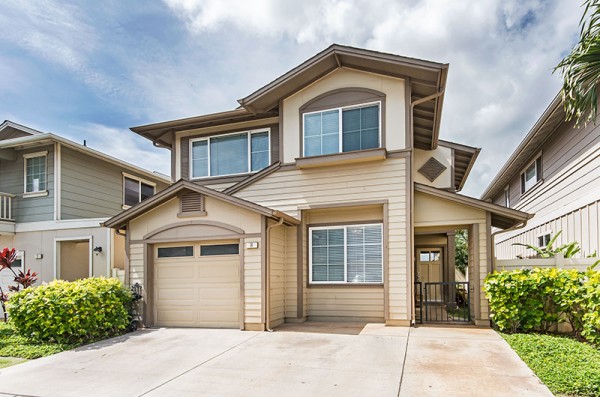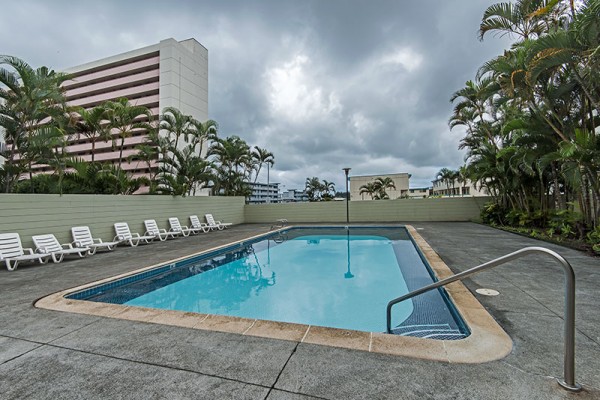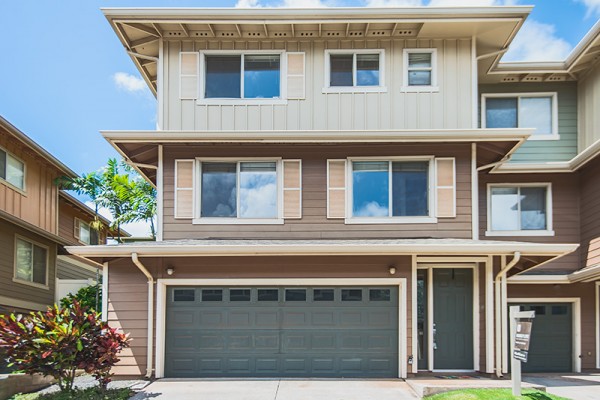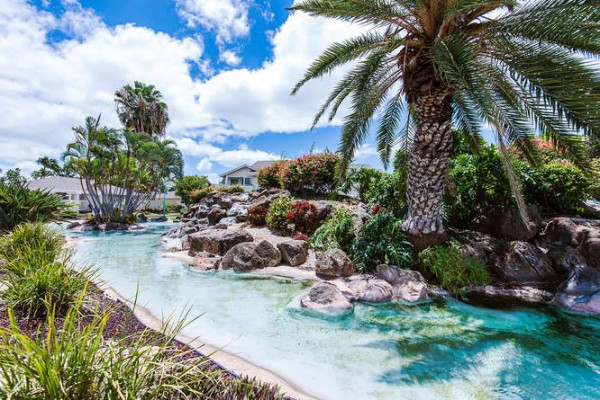Homebuyers often proclaim from the start that they don’t want to pay condo fees or don’t want to live in an association. No one wants to pay “extra,” but in Hawaii there are a few problems with this statement.
- On an island, land is limited, and in urban Honolulu, the most “affordable” housing is located in a high-rise condominium building.
- Even on the west side of Oahu, in towns like Ewa Beach and Kapolei, it’s rare to find a home not located in an association, since most of the building in the past 30 years has involved large developers creating master planned communities.
- After seeing unregulated neighborhoods, most people prefer communities with standards for noise, pets, construction, and upkeep.
91-1200 Keaunui Dr #14 in Ewa Beach, Ewa by Gentry Community Association
What Do I Get For The Money?
The important question to ask when paying association fees is: What do I get for the money?
In most associations, whether single family homes or high-rise style buildings, the homeowner is paying the association for utilities instead of paying the company directly. Depending on the number of people in a family, and the type of water and sewer usage (pool, sprinkler system, etc.), a homeowner not residing in an association may pay $100-250 per month out of pocket to the utility instead. Sometimes, particularly if a building has central air conditioning serving all the units, electricity will be included also. Some buildings do not pay for all electricity, but pay for the amount used to heat water, as it’s located in a central water heater.
Most associations are also paying for common area maintenance. This means if your community has a sign, elevator, lighting, private road or driveway, trash service, landscaping, a lobby, a shared roof, or a shared building exterior, the dues pay toward that upkeep. A homeowner not located in an association would be paying to re-seal their own driveway, maintain their yard and exterior lighting, replace the roof, and paint the exterior. That said, some associations of single family homes do require the homeowner to maintain their own roof or paint their house, but there is nearly always some common area the association is maintaining, and the dues should be lower than for an association maintaining those items.
Pool at Mountain View Terrace in Kaneohe
Many communities offer extra services or amenities requiring staffing and maintenance. Pools, tennis courts, fitness centers, extensive gardens, cable/internet, and recreation areas are examples of amenities the homeowner’s dues may pay toward. Some associations have a resident manager or concierge services on site to address any owner’s needs, or a security patrol dedicated to the property. An owner not located in an association would have to pay additional membership fees or use public facilities in order to enjoy these features.
92-1143 Panana St #1503 in Kapolei, Palehua Community Association
Insurance is another benefit to living in an association. Often, the association carries insurance on the exterior and common areas of the building, so a homeowner pays less out of pocket monthly, only insuring from the “walls in” – essentially the interior structure and personal property.
Associations are also required to put money in a reserve fund for future expenses, both planned and unexpected. Of course, homeowners are supposed to do this also, but how many of us have been surprised by bill for a plumbing problem, roof leak, or air conditioning failure? Due to the old age of buildings in Honolulu, many have undergone complete system overhauls in the past several years, and many more need to be done. If an association has not saved money in reserve for plumbing replacement, concrete spalling repair, roof replacement, or window replacement, owners may be asked to pay a “special assessment” when the work is unavoidable. This assessment not only raises the dues for unit owners, it also decreases the marketability of the condo, should an owner want to sell. A healthy reserve fund is always better! Fortunately, to verify this, a potential homebuyer is given a review period for all of the organization’s documents, including the budget, once they have an accepted contract.
Community garden space for The Arbors in Ewa Beach, Ewa by Gentry Community Association
Bottom Line
The bottom line when considering a condominium or homeowner’s association is the value you receive for the monthly dues. It’s important to understand exactly what the association pays for when budgeting for your purchase. Try adding up the following amounts you pay monthly, to see how a property you’re considering compares:
- water/sewer
- electricity
- cable/internet
- alarm system/security
- pool/fitness center membership
- party room/pavilion rental
- exterior maintenance
- driveway maintenance
- landscaping
- insurance
- savings for unexpected repairs
Is An Association A Good Fit For You?
I have represented buyers and sellers of homes in many associations around the island. Contact me today and we can discuss whether a home in an association may be a good fit for you!






Leave your opinion here. Please be nice. Your Email address will be kept private, this form is secure and we never spam you.